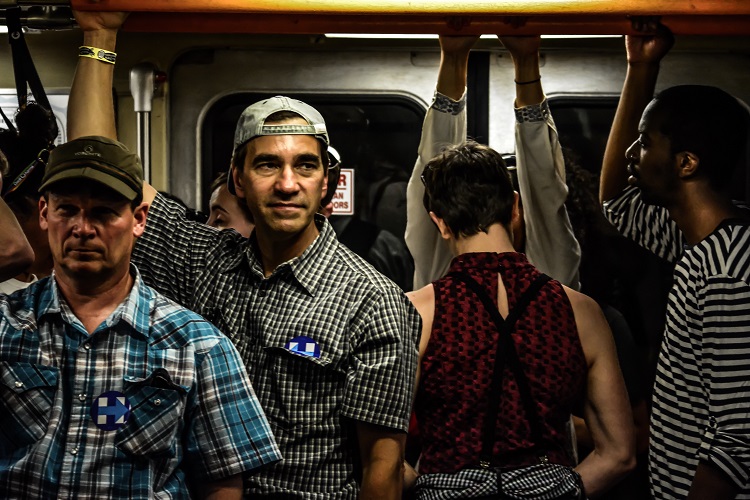At first glance, the period of history leading up to the Reformation and our current political moment seem to have little in common. While 16th century Europe was a pseudo-theocratic feudal society, ours is a modern, liberal nation-state, and increasingly secular. What can the Reformation teach us about political conflict in the US today?
It turns out that there is more in common between the two eras than one might think. While the Reformation began with disagreements over religious doctrine and corruption in the Catholic Church, and today’s culture wars center on issues of race, sexuality, disease containment, and more, both conflicts have been driven by an underlying factor: an increased scope of governance made possible by new developments in communication and infrastructure.
Medieval Europe was a thoroughly decentralized world. In theory, the entirety of Christendom was under the jurisdiction of the pope and the Holy Roman Emperor. In reality though, these potentates exercised little genuine power over peoples outside of their direct sphere of influence. Roads and communication lines were simply not reliable or efficient enough to allow for close governance of far-off lands. As the historian Charles Tilly writes of the pre-modern era: “In one way or another, every European government … relied on indirect rule via local magnates.” The end result was that local lords and bishops were mostly free to govern their own affairs.
However, by the beginning of the 16th century this had begun to change. New developments in communication and infrastructure allowed rulers, for the first time in the history of the continent, to control the behavior of their subjects in a way that impacted their daily lives. It was this change (among other factors) that precipitated the great revolt against the papacy, and eventually the Holy Roman Empire, which began in 1517. After all, many of the theological issues that motivated men like Martin Luther to rebel against authority, such as the corruption of the papacy and the clergy, had existed for centuries. But the new avenues for political centralization made these abuses more keenly felt and prompted local lords, afraid of losing their autonomy, to support the Reformers and their agenda.
What does all this have to do with modern American politics? It matters because the US has recently undergone a similar revolution in communication and infrastructure. For much of our country’s history, the federal government was limited in size and scope. Moreover, the average citizen didn’t have access to much national news, at least by today’s standards. The implication is that normal people in times of peace were mostly concerned with what happened in the public square at the local level, not what was happening in Washington, DC.
But in 1913, the Seventeenth Amendment made national Senators reliant on popular votes. In 1933, President Franklin Roosevelt initiated the New Deal, creating an extensive federal bureaucracy. In the 1960s and 70s, a landmark series of Supreme Court cases made state and local legislation matters of national interest. In 1980, CNN started the first 24-hour news cycle. And in the 2000s, the advent of social media restructured the way Americans interacted with the world around them, especially with politics.
More than a century of these changes has fundamentally altered the relationship between the ability of the federal government to impact the daily life of individuals, and vice versa. When policies made in Washington affect everything from school funding to norms about marriage, the average citizen’s stakes in national politics rise accordingly. This magnifies existing divisions in the population and generates polarization and competition on a countrywide scale.
Yuval Levin comments on this transformation in his book A Time to Build. As people’s enhanced ability to observe and learn about national politics over great distances increased, he writes that our political institutions “have become de-professionalized, cannot control their own internal processes, and are increasingly exposed to the power and pressure of political-celebrity culture.” Levin blames our current divisions on these structural changes: “This increasingly unmolded political culture then sets raw partisanship loose upon society” (64).
It seems the political consequence of improving communication and infrastructure, for better or worse, is the same as it was five centuries ago—marked by conflict. The Reformation, however, led to more than just war-like politics. It led to genuine war across all of Europe. The Wars of Religion that followed lasted over a century and were some of the bloodiest the world has ever seen. During the Thirty Years’ War, for example, some parts of Germany lost up to half of their population. This time saw a myriad of massacres and general human rights violations. How can we avoid a similar fate?
There’s no obvious answer to that question, but history does offer some potential solutions. The Wars of Religion ended with the Peace of Westphalia, when Europe’s Protestant and Catholic contingents agreed to refrain from interfering in one another’s territories over religious disputes. Instead of fighting over the sovereignty of the papacy and the Holy Roman Emperor, individual nation-states would govern their own affairs with impunity. This was an imperfect solution––Protestants and Catholics would have to tolerate what they perceived as distasteful, repugnant, and even outrageous laws in each other’s respective communities––but it was preferable to the horrific violence of all-out war.
Our present-day political disagreements, like those of Early Modern Europe, are deeply moral and speak to some of our most sacred convictions about good and evil, righteousness and injustice. It would be wrong to trivialize them. But also like the people of Early Modern Europe, we need to ask ourselves what our ideological goals are really worth. Are they worth plunging our country into turmoil and unrest, even violence? Whether you lean left or right, there is another half of the population that leans the other way, and it’s not going away. It’s therefore unlikely that one set of political beliefs can achieve total ascendancy without the coercive use of power, in one form or another. Are we willing to risk that cost?
One hundred years of conflict taught the Protestants and Catholics otherwise. Perhaps we can learn from history and resign ourselves to the fact that we live in a pluralistic society, in which different people can and will hold beliefs and take actions we don’t always agree with. This would require a re-commitment to federalism, subsidiarity, and general decentralization, as well as tolerance in the truest sense of the word. On the other hand, we may decide that our disagreements really are too important not to be settled on a national scale. But if that’s the case, we better make sure we’re right. Otherwise, we may end up repeating history.


